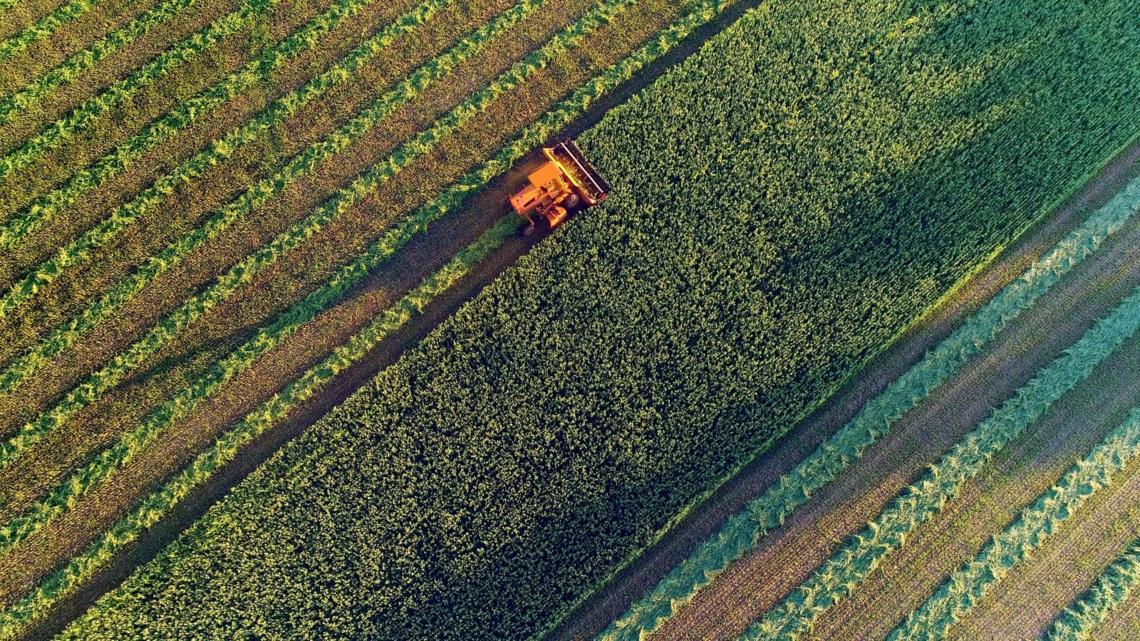New report serves as a robust starting point to help banks set targets for their agriculture portfolios and provides a strong foundation to facilitate the climate transition in agriculture.
Geneva, 1 December 2022 –The Banking for Impact on Climate in Agriculture (B4ICA) initiative, convened by the World Business Council for Sustainable Development (WBCSD) in partnership with the UNEP Finance Initiative (UNEP-FI), the Partnership for Carbon Accounting Financials (PCAF) and the Environmental Defense Fund (EDF), released its newest report: “An Introductory Guide for Net Zero Target Setting for Farm-Based Agricultural Emissions – Overview of best practices to operationalize banks’ Net Zero commitments in the food system”.
Agriculture accounts for roughly one-fifth of greenhouse gas (GHG) emissions associated with human activities and is an important source of emissions to address in limiting global warming to well below 2°C, and striving for 1.5 °C, aligned to the Paris climate agreement. Given their unique position in the economy, banks have an important role to play in the agriculture sector’s climate transition. However, measurement and disclosure of emissions attributable to banks’ agriculture portfolios is difficult due to large data gaps, lack of widely accepted methodologies, and complexities around the estimation of GHG emissions and transition pathways. These challenges drive the need for further guidance to help banks address emissions in this sector.
In this report, developed in consultation with companies in the banking sector including Allied Irish Banks (AIB), Barclays, Lloyds Bank, Rabobank, Royal Bank of Canada (RBC), Santander Group, and Wells Fargo, the B4ICA initiative aims to supplement existing guidance by highlighting best practices to help banks address the emissions impact of their agricultural portfolios. The report discusses key challenges and provides four areas of insight as a starting point for banks to set targets and engage on the climate transition of their agriculture clients, with a special focus on farms:
- Defining the scope of the net zero commitment in agriculture, and what should be in-scope for banks’ agriculture portfolio emissions targets
- Selecting climate scenarios and determining types of targets to set by evaluating tradeoffs
- Measuring emissions leveraging different methodologies and identifying key data inputs required
- Discussing the levers banks can use to engage their clients and additional resources needed to support the climate transition in the agriculture sector
Farmer engagement will be essential to making progress toward the bank’s agricultural emissions targets. Banks themselves cannot reduce emissions, but they can play an important role in mobilizing actors across the sector to adopt sustainable strategies, shaping the value proposition for farmers, and helping to finance the net zero transition in agriculture.
For more information about the Banking for Impact on Climate in Agriculture (B4ICA), please contact Gretel Gambarelli, Senior Manager, Food & Forest Finance, or Pietro Grilli, Senior Associate, Food & Forest Finance.
WBCSD news articles and insights may be republished in accordance with the Creative Commons Attribution-NonCommercial-NoDerivatives 4.0 International Public License, and in accordance with our Privacy Policy. All Content must be featured with due credits.
